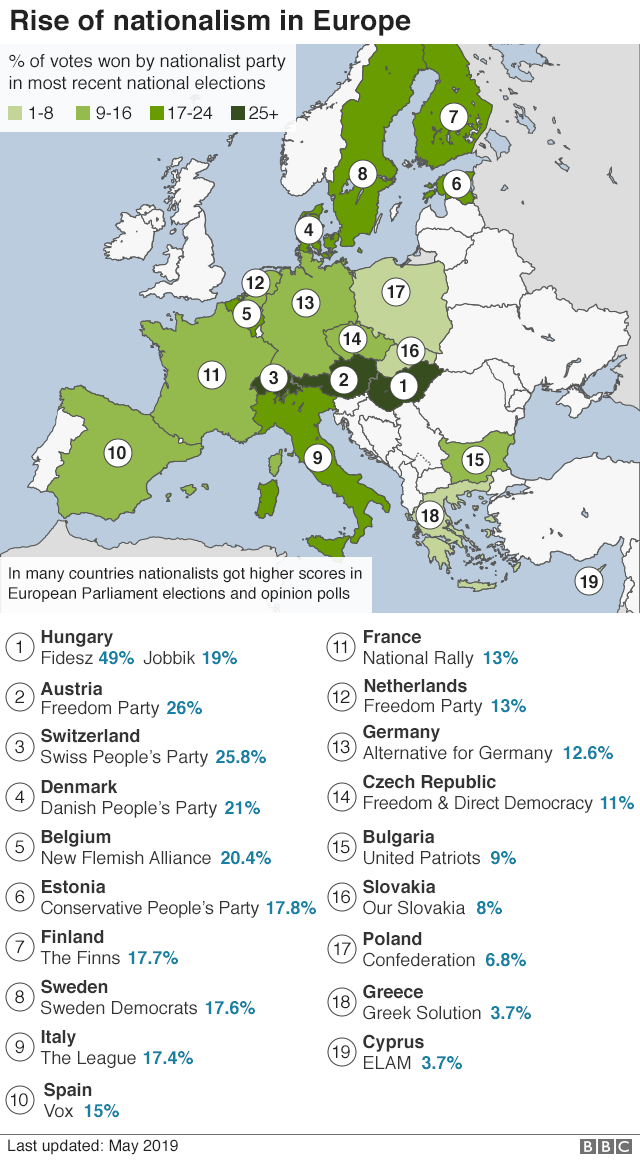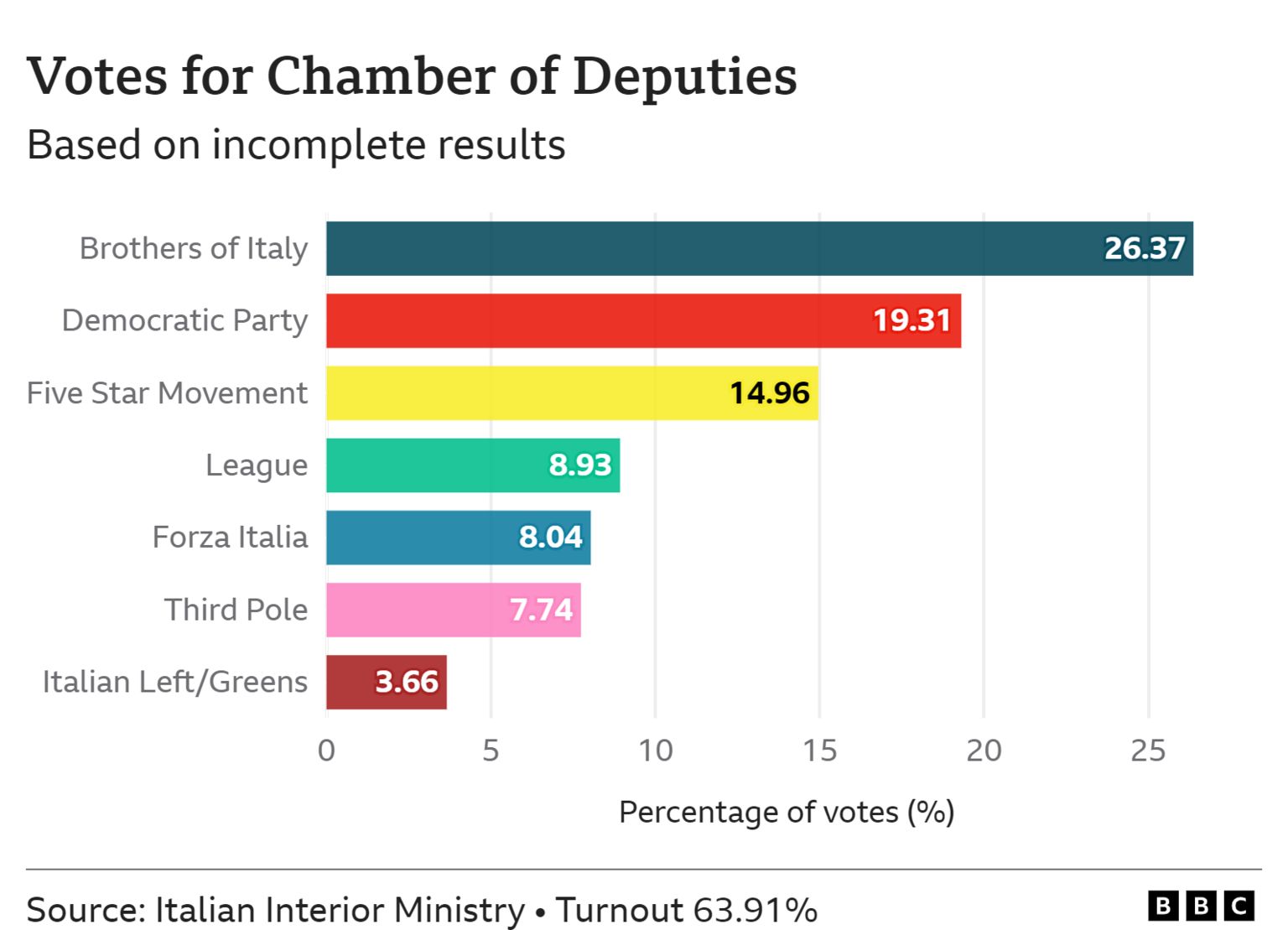Nationalism has always been a feature across Europe's political spectrum but there has been a recent boom in voter support for right-wing and populist parties.
It is visible from Germany, where the AfD has become the biggest opposition party in the Bundestag, to Spain, where Vox has become the third largest force in parliament. In part, voters are frustrated with the political establishment, but they also have concerns about globalisation, immigration, a dilution of national identity and the European Union. In the European Parliament, nine far-right parties have formed a new bloc, called Identity and Democracy (ID).
So where in Europe's political landscape do right-wing nationalists hold sway?
Italy
Far-right leader Giorgia Meloni has claimed victory in Italy's election, and is on course to become the country's first female prime minister.
Ms Meloni is widely expected to form Italy's most right-wing government since World War Two. That will alarm much of Europe as Italy is the EU's third-biggest economy.
However, speaking after the vote, Ms Meloni said her Brothers of Italy party would "govern for everyone" and would not betray people's trust.
"Italians have sent a clear message in favour of a right-wing government led by Brothers of Italy," she told reporters in Rome, holding up a sign saying "Thank you Italy".
She is predicted to win up to 26% of the vote, based on provisional results, ahead of her closest rival Enrico Letta from the centre left.
Ms Meloni's right-wing alliance - which also includes Matteo Salvini's far-right League and former PM Silvio Berlusconi's centre-right Forza Italia - now looks to have control of both the Senate and the Chamber of Deputies, with around 44% of the vote.
Her own party's dramatic success in the vote disguised the fact that her allies performed poorly, with Mr Salvini's party slipping below 9%, and Forza Italia even lower. Four years ago, Brothers of Italy won little more than 4% of the vote but this time benefited from staying out of the national unity government that collapsed in July.
The decision on who becomes Italy's next leader is up to the president, Sergio Mattarella, and that will take time.
Although Giorgia Meloni has worked hard to soften her image, emphasising her support for Ukraine and diluting anti-EU rhetoric, she leads a party rooted in a post-war movement that rose out of dictator Benito Mussolini's fascists.
Earlier this year she outlined her priorities in a raucous speech to Spain's far-right Vox party: "Yes to the natural family, no to the LGBT lobby, yes to sexual identity, no to gender ideology... no to Islamist violence, yes to secure borders, no to mass migration... no to big international finance... no to the bureaucrats of Brussels!"





No comments:
Post a Comment